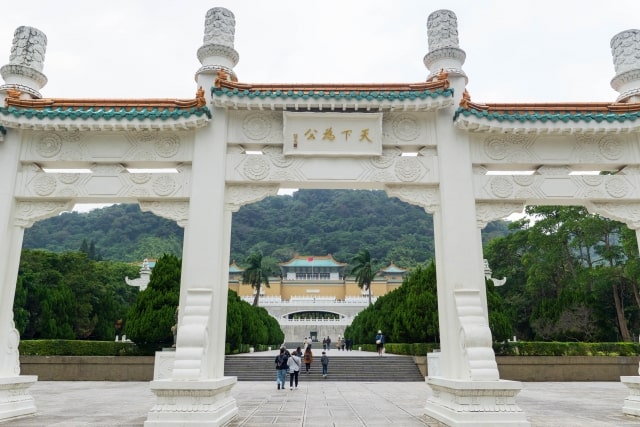In October 2024, former Prime Minister Taro Aso made headlines with his statement recognizing Taiwan as a “country.” Aso, known for his pro-Taiwan stance, has consistently supported Taiwan’s autonomy. However, Japan’s official diplomatic stance still adheres to the “One China” policy, avoiding formal recognition of Taiwan as a country. In this article, I will argue why democratic nations like Japan should officially recognize Taiwan’s independence and its status as a sovereign nation.
The Current Situation in Taiwan and International Context
Since 1949, following the relocation of the Republic of China’s government to Taiwan, the island has functioned as an independent entity, separate from mainland China. Taiwan has its own government, legislative body, military, and economy, all operating without direct control from China. Taiwan has also experienced remarkable economic growth, particularly in the semiconductor industry, where it stands as a global leader.
Despite this, only about 13 countries officially recognize Taiwan as a sovereign state, most of which are smaller nations in Latin America and the Pacific. Major nations, including the U.S., Japan, and EU members, maintain unofficial relations with Taiwan while officially adhering to the “One China” policy. However, these countries still provide military and economic support to Taiwan. For example, the United States supplies Taiwan with defensive weapons under the Taiwan Relations Act, reinforcing its ability to defend itself.
Taiwan also seeks greater participation in international organizations such as the World Health Organization (WHO) and the World Trade Organization (WTO). Although formal membership is blocked by China’s opposition, Taiwan often participates as an observer, and several countries advocate for its increased involvement in global affairs. Despite lacking full international recognition, Taiwan plays a significant role on the world stage.
Why Taiwan Should Be Recognized as a Country
1. Independent Government and Economy
Taiwan has a fully functioning independent government with its own administrative, legislative, and judicial branches, comparable to other sovereign states. Taiwan is also a major global economic power, ranking as the 21st-largest economy in the world. Its economic independence is further highlighted by its dominance in the semiconductor industry, which is crucial for global technology.
2. Historical Background
Taiwan has been separate from mainland China’s rule for more than 70 years. After the Chinese Civil War, the Republic of China government relocated to Taiwan in 1949, establishing itself as an independent government. Despite China’s view of Taiwan as a “rebel province,” Taiwan has developed a political, social, and economic system distinct from mainland China.
3. Democratic Values and Human Rights
Taiwan is one of the most successful democracies in Asia. It holds free and fair elections, with a strong commitment to freedom of speech and press. These democratic values stand in stark contrast to China’s one-party authoritarian regime. For democratic nations worldwide, supporting Taiwan’s independence is not only a matter of political strategy but also a defense of shared democratic values and human rights.
The Importance of Recognizing Taiwan as a Sovereign State
1. Maintaining Peace and Stability
Formally recognizing Taiwan’s independence could contribute to greater peace and stability in the Asia-Pacific region. The Taiwan Strait is a critical zone for global security, and by acknowledging Taiwan as a legitimate international player, tensions in the region could be reduced. Strengthening Taiwan’s international standing would also serve as a deterrent to China’s expansionist tendencies.
2. Countering Chinese Pressure
China continues to apply pressure on nations to isolate Taiwan, threatening economic and diplomatic consequences for countries that move toward recognizing Taiwan as a country. However, it is essential that the international community, particularly democratic nations, resist this pressure and support Taiwan’s rightful place in the world. Doing so would uphold the principles of democracy, international law, and the rule of law.
3. Legal Perspective
From an international legal standpoint, Taiwan fulfills the criteria for statehood as outlined in the Montevideo Convention: (1) a permanent population, (2) a defined territory, (3) a government, and (4) the capacity to enter into relations with other states. Taiwan meets all these requirements and has functioned as a de facto independent state for decades. It is only political considerations, driven largely by China’s influence, that have prevented Taiwan from being universally recognized as a country.
What Democratic Nations Should Do
Democratic nations, including Japan, should take a firm stance in recognizing Taiwan as a sovereign nation. Taiwan has shown that it upholds the values of democracy, freedom, and human rights—values that the international community should defend. Recognizing Taiwan’s independence would not only support its people but also send a strong message that democracy and self-determination cannot be overridden by authoritarian pressures.
Acknowledging Taiwan as a sovereign nation is more than just a diplomatic issue; it is a critical step in defending the principles of freedom, peace, and human rights worldwide. How Japan and other democratic nations approach this issue will shape the future of the Asia-Pacific region.
Conclusion
Taro Aso’s statement reflects the stance Japan should take as a democratic nation. The international community must also move toward recognizing Taiwan’s independence. Taiwan has all the hallmarks of a functioning, independent state, and its role as a democratic beacon in the region should be respected. By officially recognizing Taiwan’s sovereignty, democratic countries can help maintain regional stability and reinforce global trust in democratic governance.




Comments